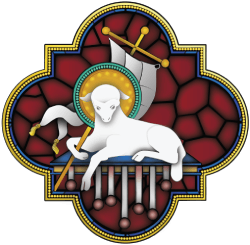August 18 | Pentecost 13, Year B
1 Kgs. 2:10-12; 3:3-14 or Prov. 9:1-6
Ps. 111 or Ps. 34:9-14
Eph. 5:15-20
John 6:51-58
Among the books of the Old Testament and in the Apocrypha, one finds a distinctive body of writing called Wisdom Literature. The primary books of this type are Ecclesiastes, Ecclesiasticus, Proverbs, Job, and the Wisdom of Solomon. There are many references to Wisdom in the New Testament. Jesus, for instance, is called the “Wisdom of God.” Wisdom has a range of meanings, all of which stress the intelligibility of the universe, the universe being wisely made, and the importance of practical skills for coping with life (that is, acting in a way that is proper to one’s individual duty and in accord with the common good).
If we were to ask, “How am I to understand the world?” Wisdom would reply, “Through study and contemplation.” If we were to ask, “What am I supposed to do with my life?” Wisdom would reply, “Cultivate a wise and discerning mind, and act with right judgment.” So, we are thinking of matters that are, in a sense, secular and very practical.
“Wisdom has built her house, she has hewn her seven pillars” (Prov. 9:1). Mysteriously, Wisdom is involved in the creation of the world. The world is, we might say, “her house.” Listen to this description of Wisdom’s work: “The Lord created me at the beginning of his work, the first of his acts long ago. Ages ago I was set up, at the first, before the beginning of the earth. When there were no depths I was brought forth, when there were no springs abounding with water. … When he established the heavens, I was there, when he drew the circle on the face of the deep, when he made firm the skies above, when he established the fountains of the deep, when he assigned to the sea its limit, so that the waters might not transgress his command, when he marked the foundations of the earth, then I was beside him, like a master worker; and I was daily his delight, rejoicing before him always, rejoicing in his inhabited world and delighting in the human race” (Prov. 8:22-24, 27-31). The affinity of this passage to the prologue of St. John’s gospel is obvious. “In the beginning was the Word, and the Word was with God, and the Word was God. He was in the beginning with God. All things came into being through him, and without him not one thing came into being” (John 1:1-3).
What do we notice? The world is created, governed, and ordered, shot through and through with divine presence and purpose. In the close of the first creation account, we hear, “God saw everything that he had made, and indeed, it was very good” (Gen. 1:31). This means, at the very least, that we owe a contemplative devotion toward the created order as a revelation of God, and we are likewise summoned to study the world. “Great are the deeds of the Lord! they are studied by all who delight in them” (Ps. 111:2). In a sense, this worldview gives rise to contemplative attention and the investigation of the natural sciences.
Wisdom is also immensely practical, having to do with the conduct of one’s life. Admittedly, mores change over time and across cultures, but certain constants reappear. Solomon asks God for “an understanding mind” to govern the people. We must each govern at least our own lives. Scripture speaks often of the need to control our tongue. “Keep your tongue from evil-speaking and your lips from lying words. Turn from evil and do good, seek peace and pursue it. Wisdom teaches us to “lay aside immaturity” and to walk in the way of insight. Watch your tongue, turn from evil and do good, seek peace and pursue it. Live honorably and peaceably among your brothers and sisters.
Look It Up: Proverbs 9:5-6 and John 6:58
Think About It: The Eucharist makes you wise unto everlasting life.



